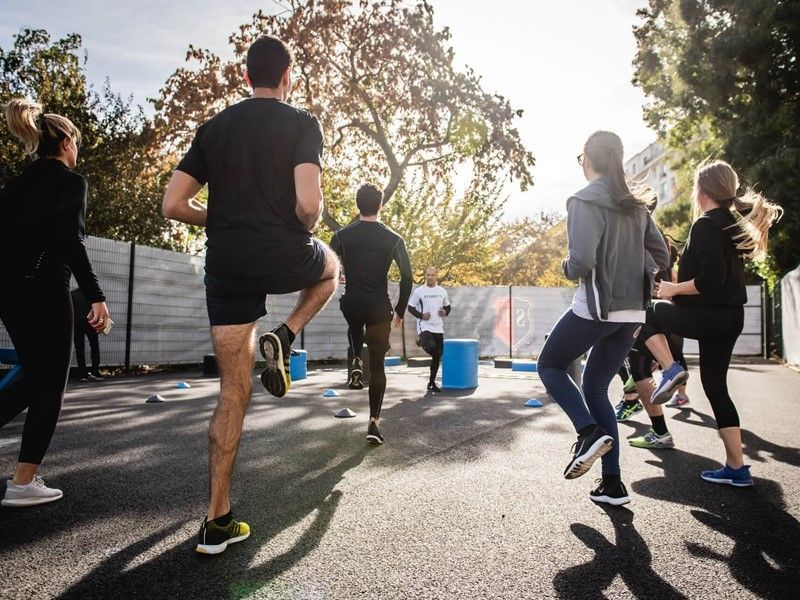Best Ways to Study for a Big Exam

Big exams are potentially a stressful part of the college experience. They often make up a large portion of your grade, and the pressure to do well on a major exam can be intimidating. With some careful planning and positive habits, you can ace your exams.
Make A Plan of Action
Any large endeavor, such as studying for a major exam, or even writing a term paper, is more manageable when broken down into smaller tasks. Taking tasks one at a time can keep you on track and help you from getting overwhelmed with the scope of the work. If your professor has provided any guidelines or information about the exam, be sure to refer to that to aid your studying.
After that, you’ll need to assemble your study materials. Did you take notes from your readings, and class lectures? Did you highlight in your textbooks or other materials? Gather everything that may be helpful for your studying and organize it, so that for each study session leading up to the exam, you know where to find everything you need.
Anti-Cramming
Trying to read and retain everything at the last minute, otherwise known as cramming, is not an effective study method. Focus instead on other productivity methods that have a little more breathing room for better results.
There is no need to implement a new, complicated productivity system as an exam approaches. There are simple methods such as the Pomodoro Technique, where 25 minutes of work is rewarded with a 5-minute break. If a longer interval of studying is better for you, 50 minutes of studying broken up by 10-minute breaks are effective as well.
Resist the urge to zone out on your phone or laptop during those breaks, and instead use that time to have a snack or drink, take a short walk, stretch, or even gaze out the window to give your eyes a break.
Change Your Scenery
There’s nothing wrong with spending some study time in a relaxing environment, such as your couch or bed, but the majority of your time should be spent in settings more conducive to studying. This means a table or desk and a sturdy chair where you can sit up straight. A space clear of visual clutter will help keep your mind clear as well. Your desk, if you have one, and the library, student lounge, or even the dining hall are all options for finding a proper study area.
You shouldn’t spend all your time in the same spot throughout your studying. The New York Times reports that simply changing your location can aid in retention, so you can switch study spots halfway through the day or at an interval that works for you.
Minimize Distractions
One of the challenges of remaining focused during study time is the constant presence of distractions. In the college environment, distractions can be in-person or virtual. Use noise-canceling headphones or earbuds, white noise, or instrumental music to help block out auditory distractions. Let your friends and family know when you plan to study so they won’t call or text, or silence your notifications during that time.
If you’re concerned about keeping virtual distractions at bay, there are apps for both phones and computers to force you to stay off social media and other distracting sites or apps. Freedom blocks distractions on both your computer and phone and an app like Forest incentivizes your diligence by growing virtual trees to represent the time you committed to not scrolling Twitter or Instagram.
Work Together
Depending on the material, some of your study time might be well-served working with others. If you don’t already have one, consider joining forces with a study partner or small group for your exam preparation. The other members of your group may have caught something you missed, or may be able to explain a concept to you as a peer rather than a professor. There is also accountability in groups; it’s more difficult to procrastinate when you’ve got a group of other students counting on you to participate. Talking through major topics, comparing notes, and quizzing one another can all be useful ways to make the most of a study group.
Take Care of Your Body and Mind
Sleep
All-nighters may be tempting at times when you feel like you don’t have enough time to get it all done. If you’ve made a plan as detailed above, you won’t need those late-night hours to accomplish all of your work. It’s much more important that you get a good night’s sleep so you’re well-rested and clear-headed for the next day.
Move
Physical activity can be incredibly helpful to your body and brain during study time. In addition to assisting in learning, exercise can relieve stress and anxiety symptoms. If you don’t have an existing exercise routine, walks or bike rides are a simple way to get some of these benefits during your studies.
Eat and Drink
While this is true at any time, it’s particularly important during intense study periods that you fuel your body with a healthy diet and minimize junk food. The snacks and sodas in the vending machine may be convenient, but don’t provide the nutrition your body needs. Eat balanced meals and healthy snacks during your studies instead.
It’s also important to stay hydrated, which can increase energy levels and improve brain function. As for caffeine, if you’re already a coffee or tea drinker, you can continue to do so. Just be sure to moderate your caffeine consumption to avoid spikes and crashes.
Day-of Essentials
On the day of the exam, arrive well-rested and have water or any other drinks that are allowed. Check your syllabus or the professor’s instructions and come fully prepared with whatever notes, textbooks and writing materials are allowed for the test.
When you live at Vintage at Tabernacle, take advantage of one of our study areas to get the preparation you need for the big test.
With some careful preparation, diligence, and self-care, a major exam doesn’t have to be intimidating. When it’s all over you’ll be glad you put the effort in, and confident that you did your best. Good luck!













